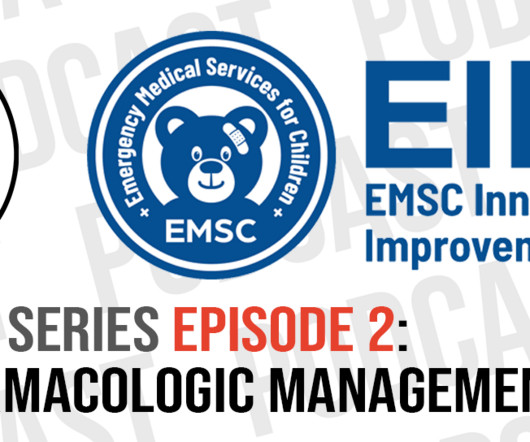Agitation Podcast Series Episode 2: Non-pharmacologic management of agitated children
PEMBlog
MAY 24, 2023
Patient that are agitated should always be treated with dignity and respect. Marianne Gausche-Hill New England EMSC: New England Regional Behavioral Health Toolkit Disclaimer The Emergency Medical Services for Children Innovation and Improvement Center is supported by the Health Resources and Services Administration (HRSA) of the U.S.












Let's personalize your content